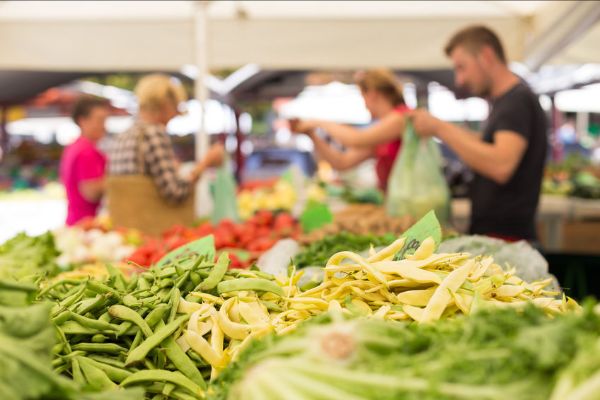Did you know there’s certain etiquette we should follow when visiting the Farmers Market? Most things are common sense and have become part of our normal routine but who couldn’t use an etiquette reminder? We just had to share this post from etiquette expert, Candace Smith. Candace Smith is a blogger and an expert when it comes to everything etiquette. Her latest post addresses something near and dear to our community – etiquette at the farmers market – and features insights from our own Megan Penn, executive director of the Orange Home Grown Farmers and Artisans Market. Read on to learn more about etiquette at the farmers market. Candace’s original post can be found here.
Your Shopping Experience
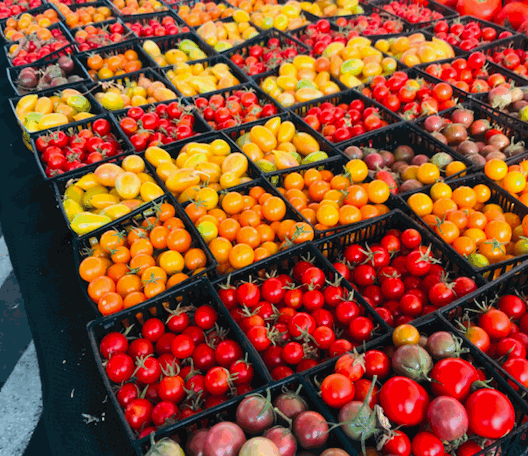
| There is a special rhythm that exists in a marketplace: the hustle and bustle of people walking through, looking for a particular item or particular vendor, greeting each other, or simply taking in the atmosphere. Your consideration of other people around you is paramount to making everyone’s shopping experience a pleasant one: Is there a queue forming to make a purchase? It’s always a good idea to ask someone you think may be in line to make sure you aren’t cutting in. If there is no line, someone behind you may be ready to purchase while you are still looking and could be blocking their way. Take notice of what others around you are doing. In the vast majority of farmers’ markets, prices are set. Haggling is not part of this type of marketplace. Explore a few vendors who are selling similar wares and make a purchase from the one closest to your price range. Many farm vendors are happy to offer you a taste of the goods offered. But you are not being offered a full meal. Megan Penn, executive director of the Orange Home Grown Farmers and Artisans Market notes, “Sometimes market patrons will come back again and again to a booth to sample rather than purchase. This can be frustrating for vendors.” Don’t forget to bring plenty of bags to carry your purchases. Some vendors may offer plastic bags, but many may not. Even if they do, bringing your own bag cuts down on the vendor’s overhead costs, which they will likely pass along to their customers. Bring cash to pay for your purchases. And for very crowded venues, bringing plenty of patience is also a good idea! |
Pets and Children
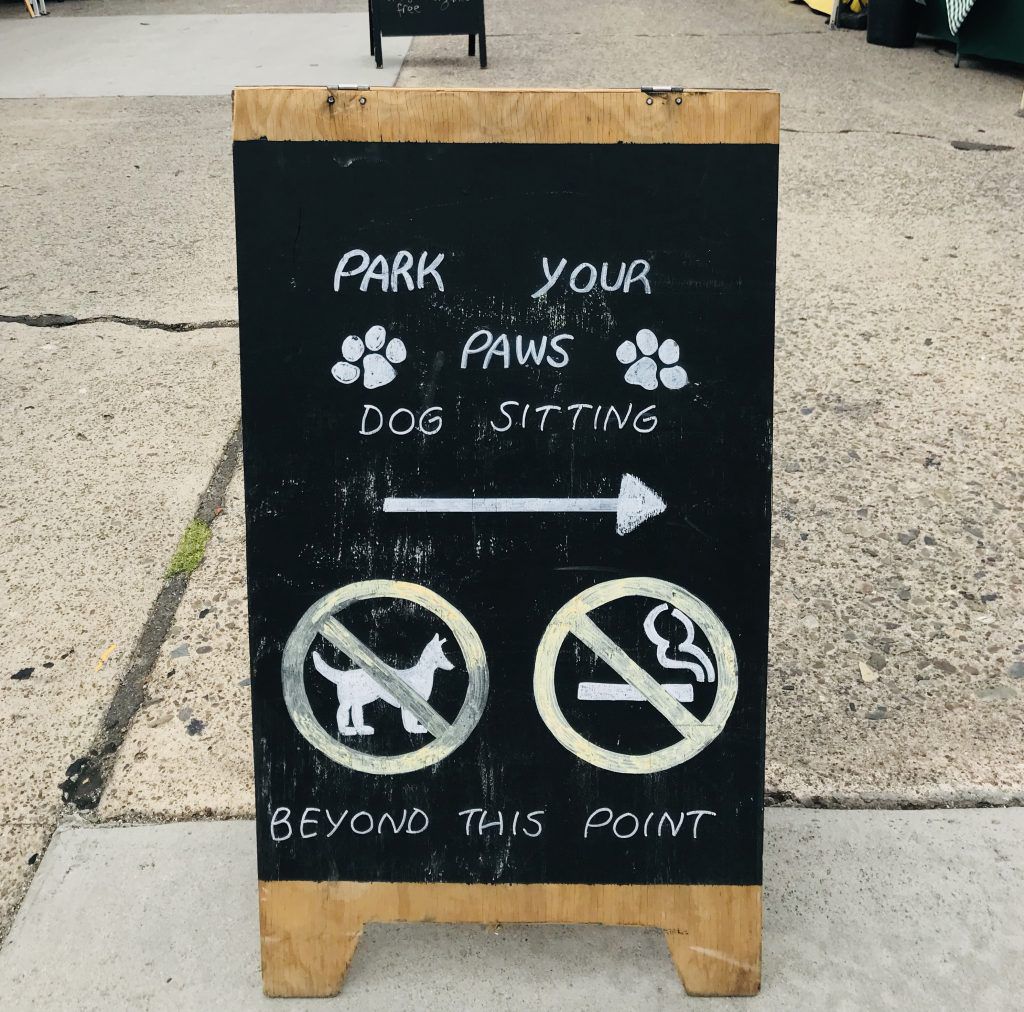
If you have pets or children tagging along, there are special precautions to consider. Ms. Penn tells us the Orange County Health Care Agency mandates that animals are not allowed within 20 feet of food vendors unless they are a service animal. Before taking your pet with you to the market, check your local health agency guidelines.
If you do decide to bring your pet, make sure they are crowd friendly and are on a short leash. Animals are unpredictable and even the friendliest of them can have a “moment” when stressed. Children can also be unpredictable but aren’t as easily left at home. Besides, a farmers’ market makes for a wonderful family outing!
Prepare your children for the experience by discussing “don’t touch” and “don’t taste” rules with them. Also, ensure that your children won’t wander away from you without permission. I have witnessed some incredibly frightening moments when this happens. Strollers or wagons can become cumbersome. Remain mindful of other shoppers and take care when moving through crowds with a stroller, children, and purchases to maneuver.
When Problems Arise
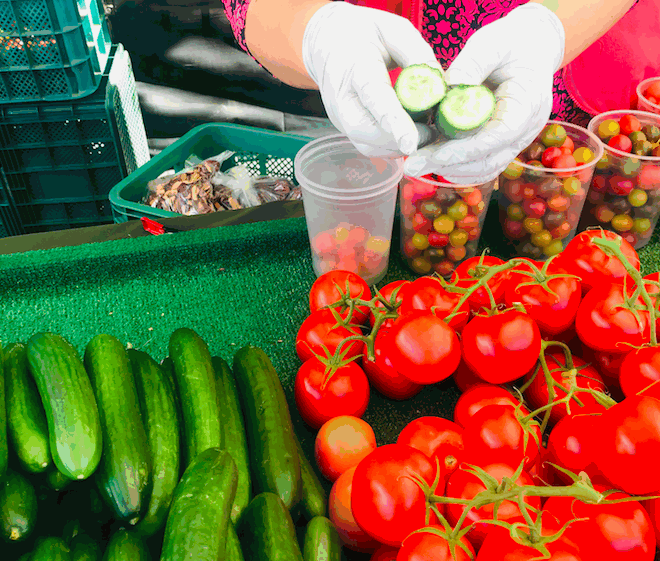
Farmers’ markets usually have an information booth or area to provide answers to questions or to help resolve a complaint.
If there is an issue with a product, Ms. Penn suggests contacting the vendor directly through email about their specific product. Most vendors have websites and Facebook pages with contact info. If there is an overall concern or if you can’t find contact info for a specific vendor on-line, then contacting an administrator or manager with your local market would be the next way to report a concern.
Be thoughtful when complaining to a vendor. Typically, he or she made or grew their product and are aware of the amount of work put into it as well as the true cost. If something has gone wrong, a kind approach to the issue will yield better results than an unthoughtful confrontation.
Shop Locally!
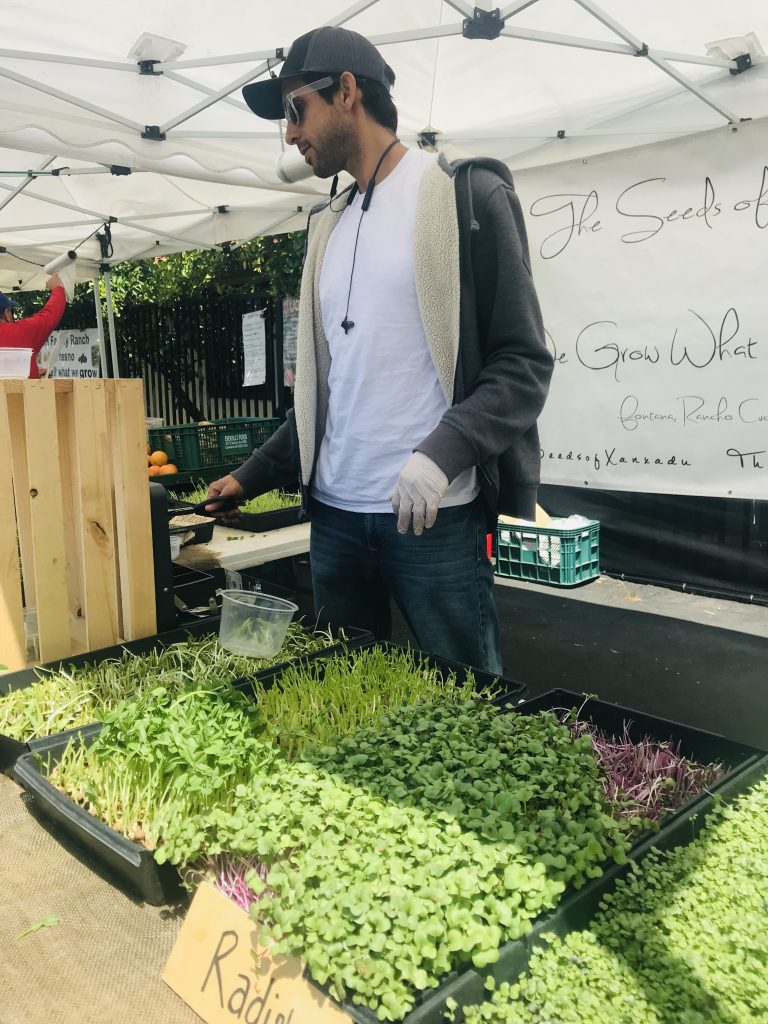
By shopping at the farmer’s market, you are not just supporting local farmers, you are supporting the organizations that keep the markets going. Many markets contribute back to their communities by helping fund education programs, seed lending libraries, scholarship programs, and nutrition classes.
It feels great to know that purchasing local, fresh food supports the source from which it comes, feeds your family, and supports the community in which you live!
